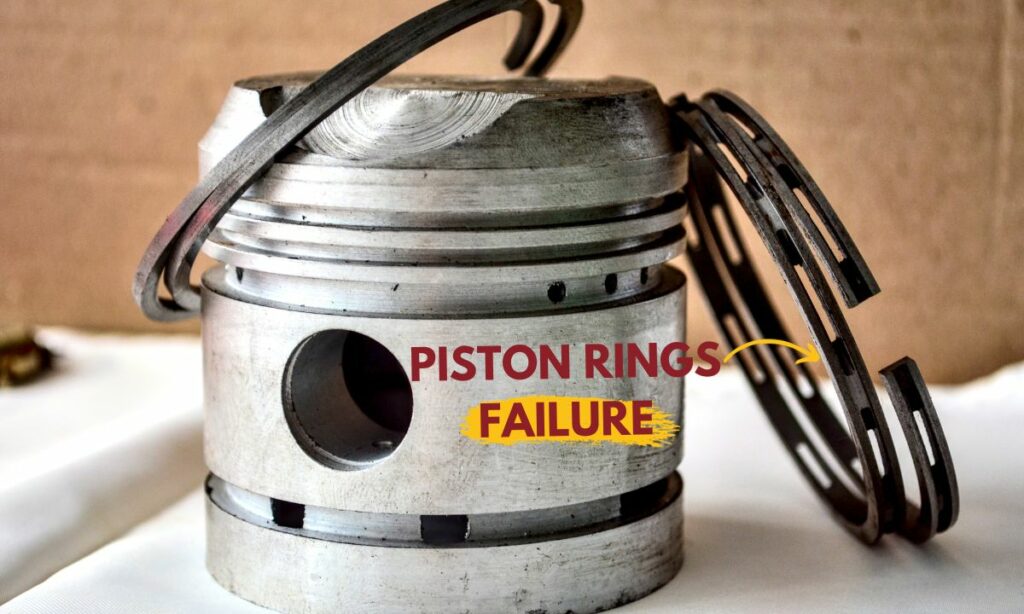Piston ring damage is a big headache. Replacing them involves removing the engine cylinder head and then the piston itself. A costly affair I tell ya.
So, what causes piston rings to fail?
Here are the main reasons why piston rings go bad:
- Poor quality engine oil
- Air filter is letting in dust
- Oil filter is not working right
- Engine blowby
- Fuel flooding in carburetted engines
Without further ado, let’s deep dive into each of these causes and their solutions.
#1. Poor quality engine oil
The main culprit for the piston rings to fail is poor-quality engine oil.
The engine oil is vital for lubricating and cooling the engine parts. We know that. But what we forget is using high-quality engine oil.
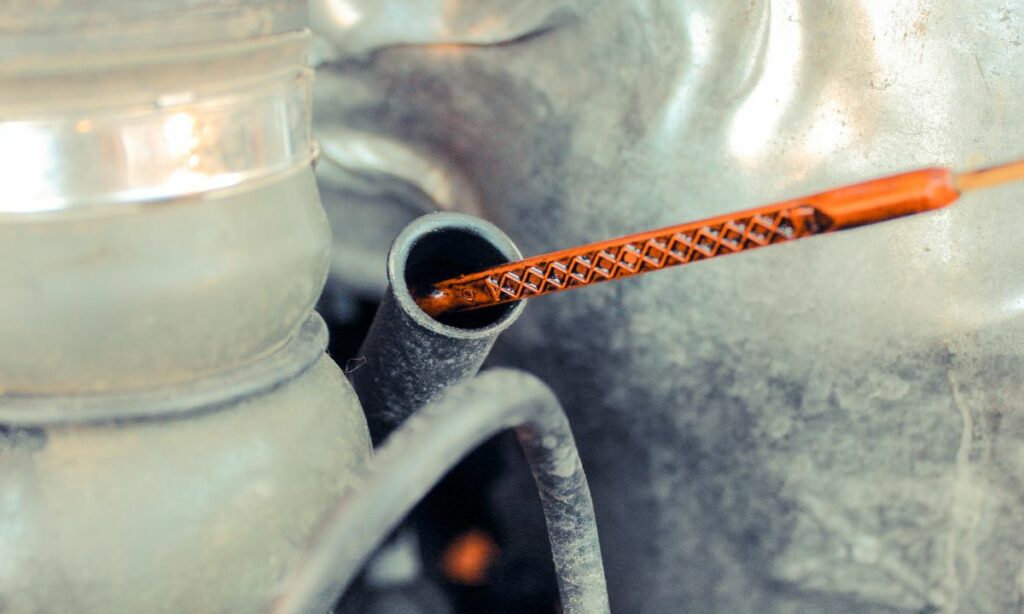
It doesn’t end there.
Even if you use high-quality engine oil on your motorcycle, you must change the oil regularly.
How often?
Depends on the engine oil type you are using. But here is the thumb rule:
| Type of Oil | Frequency of Oil Change |
|---|---|
| Mineral Oil | 2000 miles |
| Semi-Synthetic Oil | 5000 miles |
| Synthetic Oil | 8000 miles |
If you don’t change the oil, the high-quality oil we poured turns into poor-quality oil.
Over time, sludge and deposits start to form. So the quality doesn’t stay the same.
And bad oil is bad news.
Without sufficient lubrication, there will be strong metal-to-metal contact between the rings and the cylinder’s inner walls. Which results in the piston rings’ damage. And if you have the worst luck, the damage to the cylinder’s inner walls as well.
So what’s the solution?
Delulu is the solulu. Just kidding.
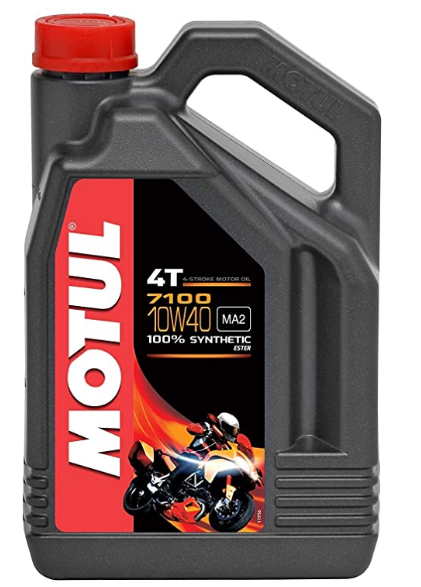
First, use high-quality engine oil. Second, change the oil regularly.
#2. Air filter not working
If the air filter is not working right it won’t filter the dust from air. And that can damage the piston rings.
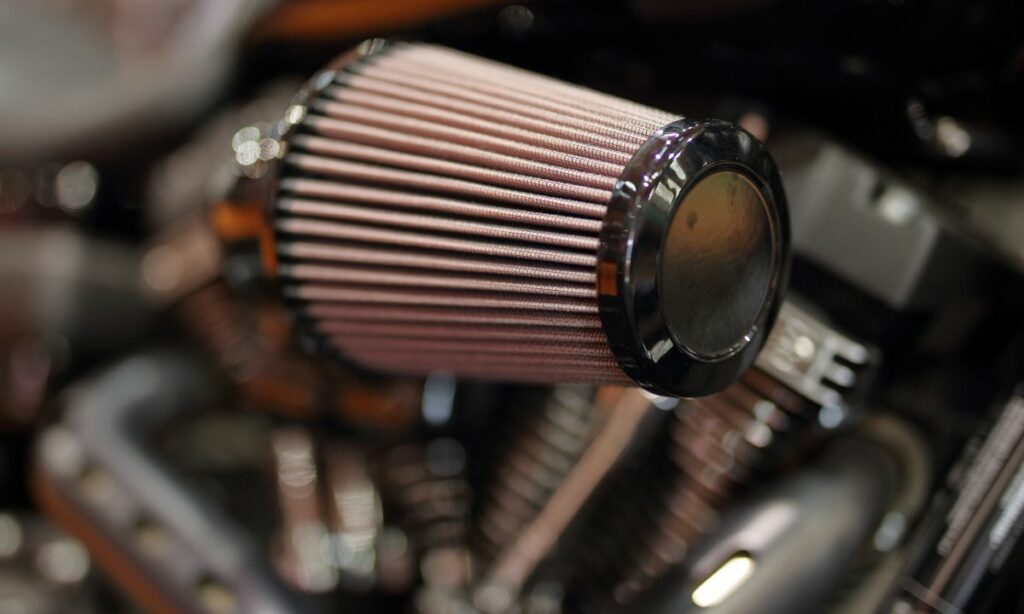
When the dust enters the engine, since air filters are not filtering it, these particles start accumulating on the cylinder walls.
And bit by bit, slow and steady, they start to wear out both the piston rings and the cylinder’s inner walls.
Of course, this is not sudden damage to either piston rings or the cylinder walls.
But, it’s a slow process. Eventually, it gets so bad that you need to remove the piston rings and replace them, and for the cylinder walls, you have to re-bore the cylinder to use further.
#3. Damaged oil filter
Another source of contamination is when the oil filter not filtering right.
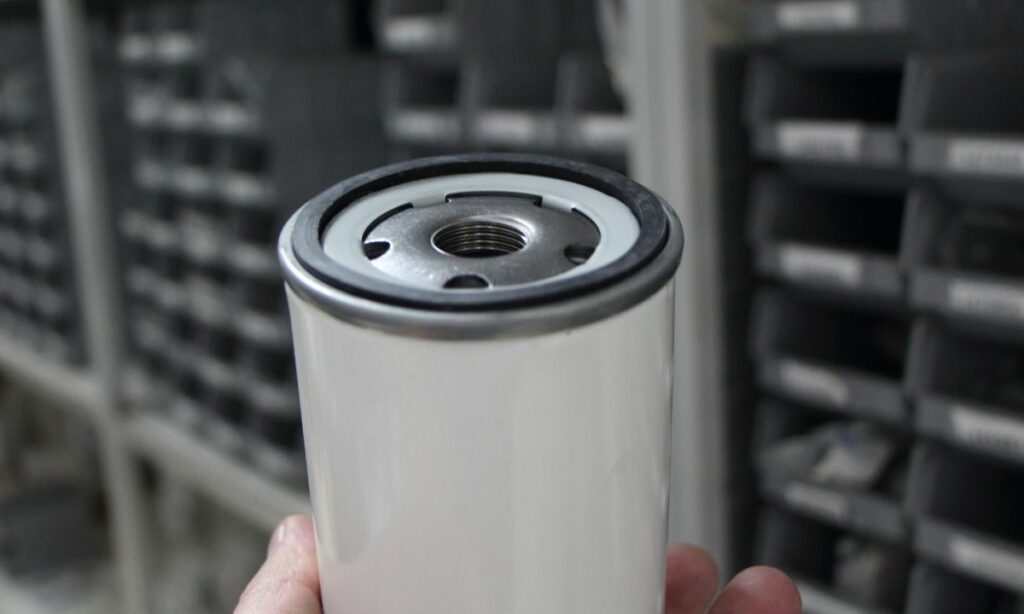
When the engine oil has lots of contaminants and grit, it again starts accumulating. And over time, damages both the piston rings and the cylinder walls.
Eventually, the only solution remains that one needs to replace the piston rings and re-bore the cylinder to get a clean inner cylinder wall.
In a way, the oil filter problem is much more serious than that of the air filter problem. This is because the oil film needs to be continuously present between the piston rings and the cylinder walls to avoid metal-to-metal friction.
The oil contaminants and grit accumulating there, between the piston rings and the cylinder walls, worsen the situation by gradually damaging both the piston rings and the cylinder walls.
So what should you do?
Look for bad oil filter symptoms. Newer motorcycles show the oil light or the engine malfunction light ON if the oil filter is failing.
You can also look for general symptoms like oil color and texture, gray exhaust smoke, or leaking oil from the motorcycle.
Once you suspect there is something wrong with the oil filter, check its condition.
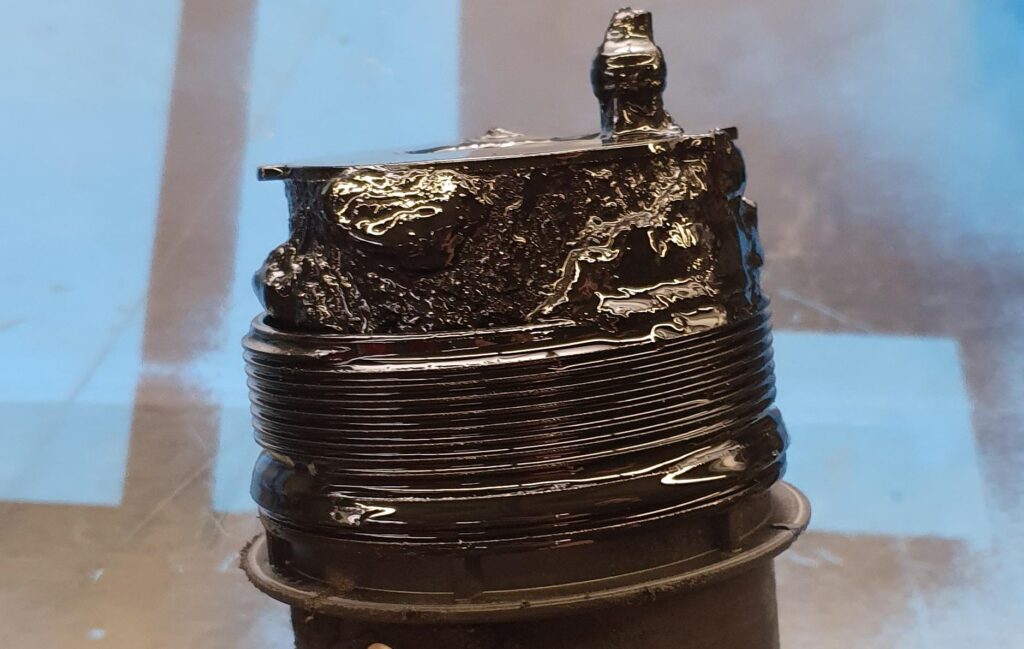
If the oil filter is clogged or damaged, you have to replace it.
Even in general, you must replace the oil filter regularly. A frequency of 6000 miles works great.
#4. Fuel flooding in carburetted engines
Fuel flooding occurs when a rich mixture enters the engine and is unable to detonate completely. As a result, traces of unburnt fuel remain inside the engine.
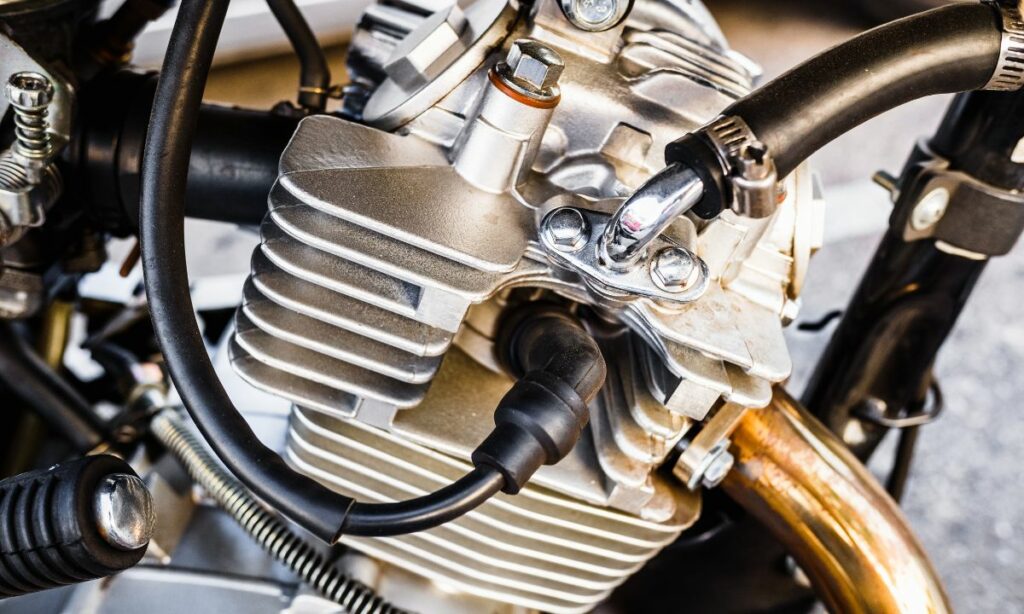
Now what this unburnt fuel does is it starts accumulating and replacing the thick oil film along the cylinder walls.
If the lubricating oil has not formed a thick layer, the unburnt fuel will easily replace it.
As soon as the fuel replaces the oil, the piston rings and the cylinder walls will start to have close metal-to-metal contact since there is no more oil lubricating them.
As a result, continuous metal-to-metal friction will start between the rings and the inner cylinder walls until the fuel has been removed from the engine through exhaust ports.
If this cycle of fuel flooding continues, then the metal-to-metal friction will increase dramatically, resulting in damaged piston rings.
#5. Engine blowby
Engine blowby happens when the fuel mixture in the combustion chamber trickles down along the gaps between the piston and the piston rings.
As a result of this tricking down of the fuel mixture, the fuel which is getting burnt will also burn the piston rings, engine oil along the piston walls as well as the piston grooves.
Although the main effect of engine blowby is low compression and loss of power in the engine, it also results in the damage of piston rings – mainly the compression ring.
It’s not THE main cause for piston rings failure. But it can damage the compression ring (the topmost piston ring).
To know more, here is our explainer on engine blowby’s cause and symptoms.
Symptoms
If the piston rings are failing or damaged, here are the symptoms to look for:
- Excessive engine oil consumption
- White smoke from the exhaust
- Low compression in the engine
- Decreased power and acceleration
- Piston slapping
The details of each of these phenomenon is explained here.
Solution
If the piston rings are failing, the solution is to replace them.
Replacing piston rings is a difficult task since you need to take out the engine and then replace the piston rings.
The standard replacement cost of piston rings can be more than $1000.
It’s not that piston rings are costly. They hardly cost around $50 to $100. But the labor charges will be too high since piston ring replacement is labor-intensive and can take 8 to 10 hours.
Final words
In order to prevent the piston rings from failing, adopt preventive measures.
First, use good quality engine oil and ensure that the oil levels are not low. Also, change the oil regularly.
Second, make sure the air filter and the oil filter are clean. These two filters must not allow dust and contaminants to flow through them.
Third, ensure there won’t be fuel flooding of the engine. Tune the carburetor for the right air-fuel mixture so that the engine does not receive an extremely rich fuel mixture for combustion.
Before you go…
Here are a few piston rings posts from us:
